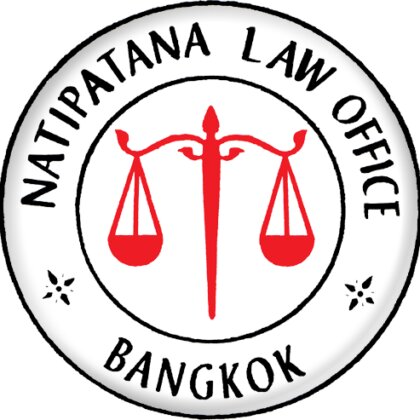Best Legal Document Lawyers in Phuket
Share your needs with us, get contacted by law firms.
Free. Takes 2 min.
List of the best lawyers in Phuket, Thailand
Legal guides written by SIAM LEGAL INTERNATIONAL:
- Defamation Laws in Thailand: Criminal Charges and Civil Suits
- The State of Thailand’s Long-Term Resident (LTR) Visa Program in 2025
- The Penalties Of Not Filing Your Income Tax Return As A Foreigner In Thailand
Thailand Legal Document Legal Articles
Browse our 1 legal article about Legal Document in Thailand written by expert lawyers.
- How Notary Public Services Work in Thailand
- When preparing to submit documents for official purposes, you may be required to have them first validated through a notary public in Thailand for them to be deemed acceptable. Whether these documents are contracts, affidavits, or business agreements, having them notarized is crucial to confirming that they are properly signed,... Read more →
About Legal Document Law in Phuket, Thailand
Legal document law in Phuket, Thailand, encompasses the preparation, review, and management of various legal documents that are critical for personal, business, and governmental transactions. These documents can include contracts, wills, property deeds, business agreements, and judicial paperwork. Due to Thailand's specific legal practices and language requirements, it is often necessary for these documents to be prepared or reviewed by legal professionals who understand both the local and international contexts.
Why You May Need a Lawyer
There are several scenarios where having a lawyer is beneficial when dealing with legal documents in Phuket:
- Property Transactions: Legal guidance is essential for ensuring that property deeds and transactions comply with Thai law, especially for foreigners.
- Business Formation: Setting up a business in Thailand involves numerous legal documents and licenses that must adhere to local regulations.
- Contract Drafting and Review: Contracts must be carefully crafted to protect your interests and comply with legal standards.
- Wills and Estate Planning: Legal assistance ensures proper drafting of wills to honor intentions and comply with Thai inheritance laws.
- Dispute Resolution: Navigating the complexities of arbitration, mediation, or litigation may require legal expertise.
Local Laws Overview
The legal system in Phuket, like the rest of Thailand, is grounded in a civil law framework influenced by Thai traditions and the judiciary. Key aspects to consider include:
- Foreign Ownership Restrictions: Laws governing the ownership of land and property by non-Thais are strict, requiring knowledge of specific legal mechanisms that allow foreign investment.
- Thai Language Requirement: Legal documents must be translated into Thai, and sometimes notarized translations are required for official acceptance.
- Visa and Immigration Laws: Legal agreements can affect visa statuses, particularly for retirees, business owners, and work permit holders.
- Estate and Inheritance Rules: Expatriates face unique challenges under inheritance laws, making wills crucial.
- Contractual Laws and Enforceability: Contracts must meet Thai standards to be enforceable in courts, which frequently necessitates the guidance of a lawyer.
Frequently Asked Questions
Do I need a lawyer to draft a will in Phuket?
While not legally required, having a lawyer draft your will ensures it complies with Thai law and accurately reflects your wishes, particularly for expatriates navigating the nuances of local inheritance regulations.
Can foreigners own land in Phuket?
Foreign ownership of land is generally restricted, but there are legal structures like leaseholds and company ownership that allow property investment under specific conditions.
What is the process to form a business in Phuket?
Forming a business involves registering with the Department of Business Development, securing the necessary permits, and adhering to local regulations. Legal advice is crucial for complying with Thai business laws.
Are contracts enforceable in Phuket?
Yes, provided they meet the requirements prescribed by Thai law, including being written in Thai or with an accurate translation, and signed by the involved parties.
How can I ensure my legal documents are valid in Thailand?
Consultation with a lawyer helps ensure compliance with Thai legal standards, proper translations, and notarization if required.
Is it necessary to notarize legal documents?
Certain documents, particularly those related to international transactions or property, may require notarization to be recognized by legal authorities.
What are the inheritance laws in Thailand?
Thai inheritance laws govern the distribution of assets and may affect expatriates differently, necessitating proper legal advice when drafting a will.
Can I use my home country's legal documents in Thailand?
Foreign documents typically require translation and validation to be legally accepted in Thailand. Consultation with a legal professional is recommended.
Who regulates legal documents in Phuket?
The Thai government, through various departments specific to business, property, and personal affairs, regulates legal documents, and compliance with local laws is enforced by the judiciary.
What happens if there's a dispute over a legal document?
Disputes can be resolved through mediation, arbitration, or legal action in Thai courts. Legal counsel can guide the most effective resolution path.
Additional Resources
The following resources can offer additional guidance related to legal documents in Phuket:
- Thai Embassy and Consular Services
- Phuket Provincial Land Office
- Department of Business Development (DBD), Thailand
- Local Chambers of Commerce for business queries
- Legal Aid Centers and law firms specializing in Thai law and foreign interactions
Next Steps
If you require legal assistance with documents in Phuket, consider the following steps:
- Determine the type of legal document or assistance you need (e.g., property, business, or personal).
- Consult with a reputable lawyer or legal firm familiar with local and expatriate laws in Phuket.
- Prepare necessary identification and previous legal documents for thorough consultation.
- Engage with legal professionals who can provide both translation and verification services.
- Follow through with the lawyer's advice to ensure all documents adhere to current legal standards.
Lawzana helps you find the best lawyers and law firms in Phuket through a curated and pre-screened list of qualified legal professionals. Our platform offers rankings and detailed profiles of attorneys and law firms, allowing you to compare based on practice areas, including Legal Document, experience, and client feedback.
Each profile includes a description of the firm's areas of practice, client reviews, team members and partners, year of establishment, spoken languages, office locations, contact information, social media presence, and any published articles or resources. Most firms on our platform speak English and are experienced in both local and international legal matters.
Get a quote from top-rated law firms in Phuket, Thailand — quickly, securely, and without unnecessary hassle.
Disclaimer:
The information provided on this page is for general informational purposes only and does not constitute legal advice. While we strive to ensure the accuracy and relevance of the content, legal information may change over time, and interpretations of the law can vary. You should always consult with a qualified legal professional for advice specific to your situation.
We disclaim all liability for actions taken or not taken based on the content of this page. If you believe any information is incorrect or outdated, please contact us, and we will review and update it where appropriate.

















